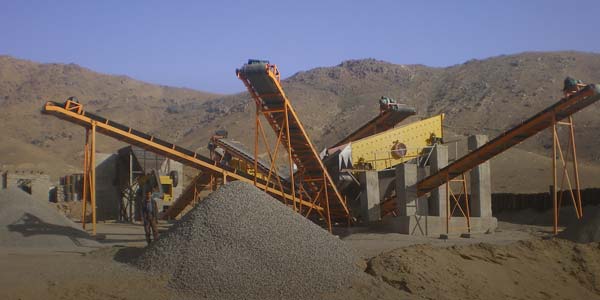
Explore how concrete crushing equipment transforms construction waste into valuable resources, promoting sustainability and cost savings.
The construction industry is constantly evolving, driven by innovation, sustainability, and efficiency. One of the key advancements reshaping the sector is the rise of concrete crushing equipment. This powerful machinery plays a crucial role in turning construction waste—once considered trash—into reusable materials. With the increasing demand for eco-friendly construction practices, concrete crushing has emerged as a solution to tackle waste management while creating valuable resources. In this article, we explore how concrete crushing equipment for sale helps recycle construction waste and its significant role in promoting sustainability.
Whether it’s demolishing old structures or repurposing discarded materials, the ability to crush and recycle concrete is changing how we approach waste in construction. Concrete crushing equipment is transforming debris into high-quality aggregate that can be used for new construction projects. This not only reduces the environmental footprint of construction but also adds value to waste that would otherwise be discarded. Let’s dive deeper into how this process works and why it’s gaining traction in modern construction.
When a building is demolished, large amounts of concrete are typically left behind as waste. Rather than filling landfills, concrete can be crushed into smaller, reusable aggregate. Concrete crushing machines are specifically designed to break down large chunks of concrete into smaller, manageable pieces. These crushed materials are then sorted and screened to remove contaminants such as rebar and other debris, ensuring that the final product is clean and suitable for reuse.
The process of crushing is a combination of high-powered crushers and sophisticated machinery that can reduce even the toughest concrete into gravel-sized pieces. This is where technology shines—advanced track crusher uses powerful hydraulic systems and cutting-edge design to break down concrete into valuable materials. The result? Clean, reusable aggregate that can be used in everything from road construction to new building foundations. By eliminating the need for new materials, concrete crushing reduces the demand for natural resources and cuts down on transportation costs.
Once the concrete is crushed, it can be repurposed in a variety of ways. Crushed concrete aggregate is often used as a base material for new construction projects, such as roadbeds, driveways, and parking lots. It can also be mixed with new concrete to produce sustainable construction materials. Additionally, crushed concrete can be utilized for landscaping purposes, providing a cost-effective alternative to gravel or crushed stone.
Not only does repurposing crushed concrete reduce the need for virgin aggregates, but it also conserves energy. Traditional mining operations used to extract new aggregates are resource-intensive, consuming significant amounts of energy and water. By recycling construction waste, concrete crushing helps minimize these environmental impacts while reducing the strain on natural resources.
The benefits of concrete crushing extend beyond just the reduction of waste. The environmental impact is profound, as recycling concrete reduces the need for landfill space and cuts down on carbon emissions associated with traditional construction practices. By reusing concrete materials, construction projects are less reliant on transporting virgin aggregates, which significantly lowers the carbon footprint.
From an economic perspective, concrete crushing also offers substantial cost savings. Construction companies can save on disposal fees for waste and reduce the cost of purchasing new aggregates. Moreover, using recycled concrete often leads to more competitive pricing for projects, providing an edge in the market. The economic and environmental benefits of concrete crushing are undeniable, making it a win-win solution for the industry.
The role of concrete crushing equipment in recycling construction waste is a shining example of how innovation is driving sustainability in the construction industry. By turning demolition debris into valuable resources, concrete crushers are not only reducing the environmental impact but also making construction projects more efficient and cost-effective. As the demand for sustainable practices grows, the adoption of concrete crushing equipment will continue to play a vital role in shaping the future of construction. The days of treating concrete waste as useless debris are over—the future is all about repurposing, recycling, and building smarter.
© 2024 Crivva - Business Promotion. All rights reserved.